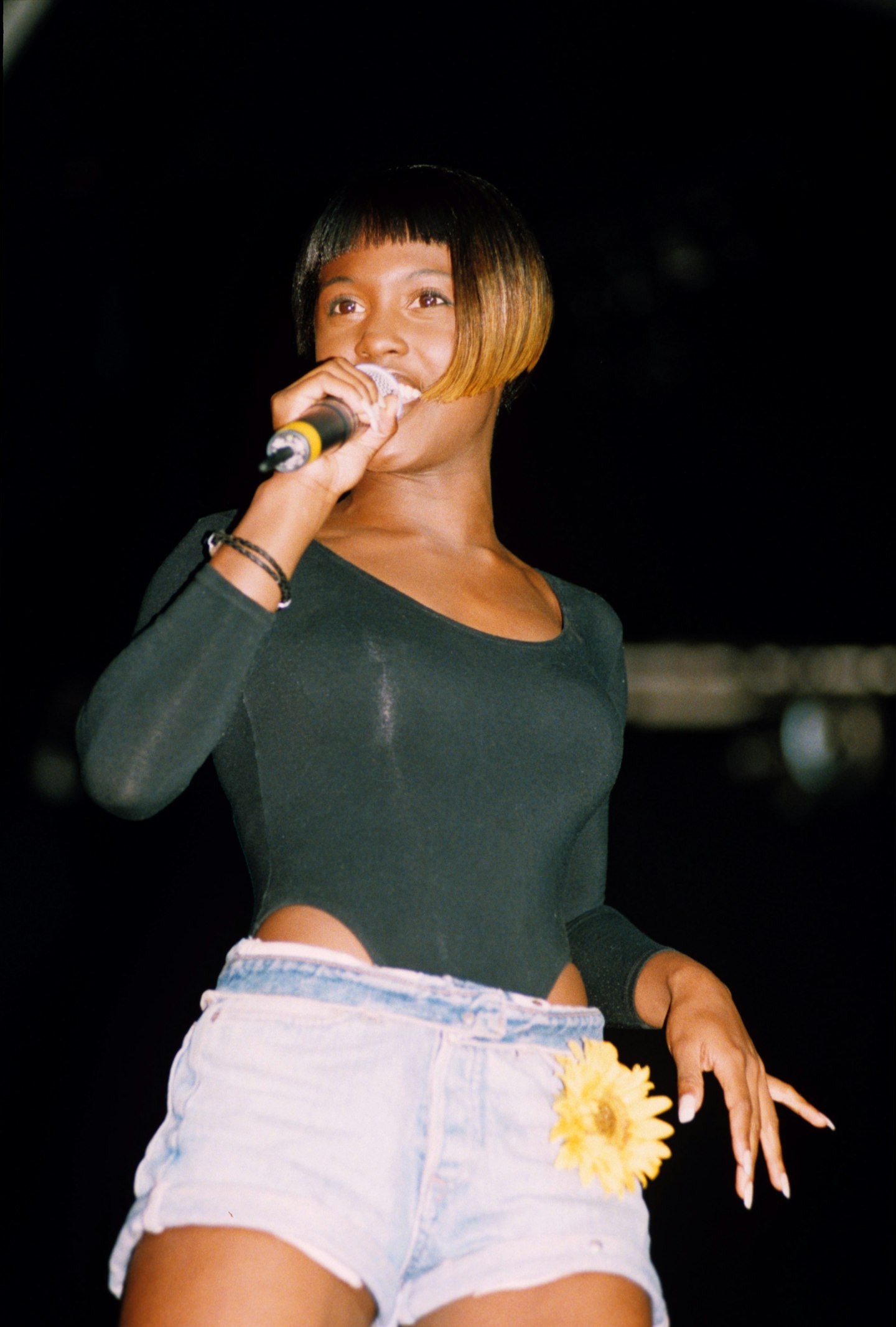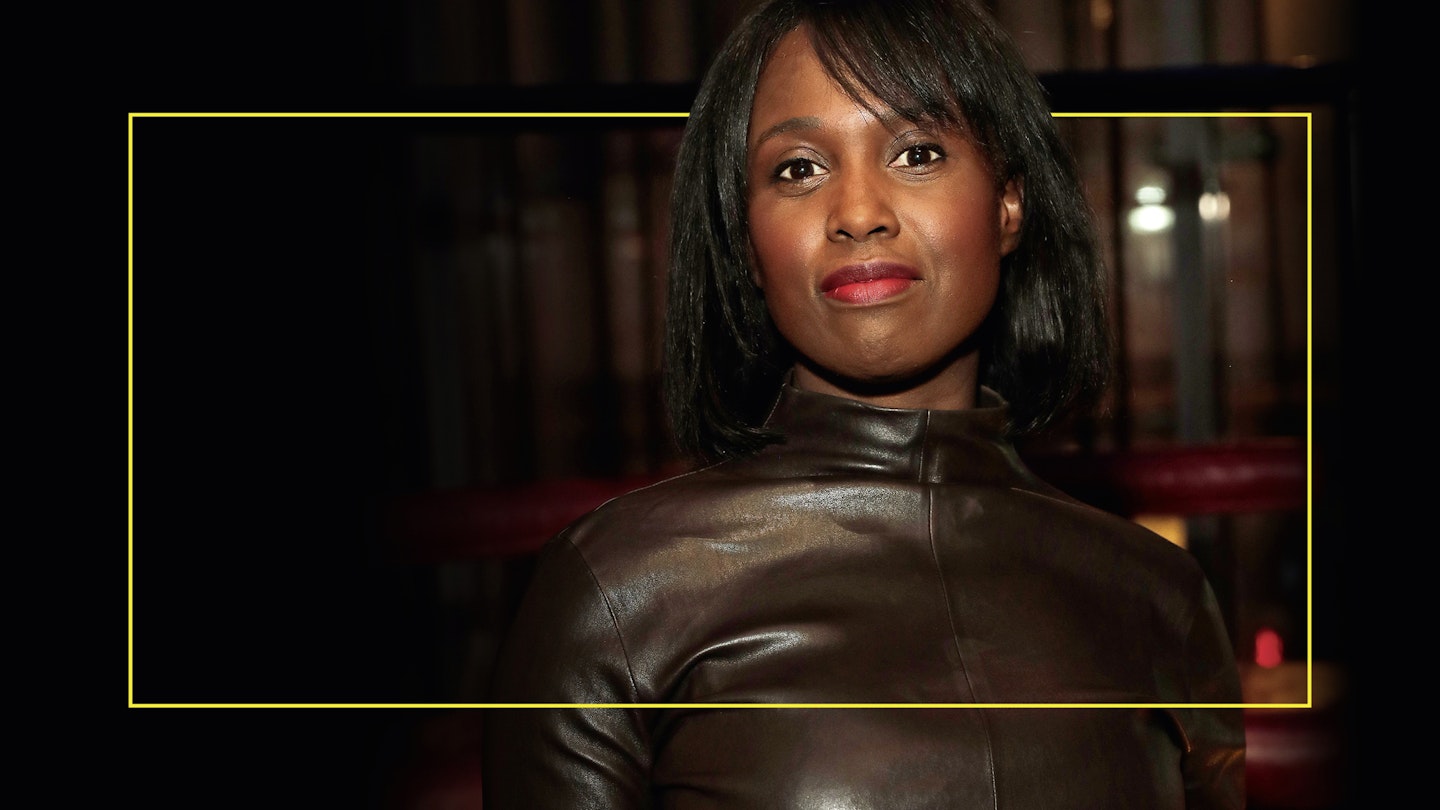For many Black people, the death of George Floyd and the Black Lives Matter protests that have followed, has caused an outpouring of pain – because of the cruel and inhumane way he was treated simply because he was black but also a pain that comes from being triggered to go over racist events and micro-aggressions that have happened to them in the past.
This time last week, that happened to me, when a friend sent me an article from 1994 – an interview that, at the time, saw me almost banned from Top of the Pops and told, by my management, ‘less of the black stuff’.
‘So much hasn’t changed’ she said, when she sent me the piece. It ran in The Sun, with a headline ‘I’m often stopped by the cops, just because I’m black and driving a £15,000 convertible’. I was brought up in inner city London - Harlesden NW10. Back in the 80s and 90s getting stopped by police was a lived experience for me and many of my friends – so what actually triggered me was remembering the reaction from my creative team.
As I’d completely normalised being stopped by the police, it’s not something they’d heard me speak about but this was different - this time I was stopped three times in one week. Each time I was given ‘a producer’ which meant that I had to go to the police station to prove I was insured and had a licence to drive my own car. (I did). Getting a producer was one thing but three times in a week was demoralising. And I found myself wondering whether I should change my car for an older, cheaper one - a vehicle more in line with what those police officers clearly thought I should be driving. I’d commented to someone in my management team, ‘I’ve had three producers in a week,’ and this lady, who was a white woman about 15 years older than me, said, ‘What’s a producer?’

I had to explain it to her. She had no idea what a producer was and I suddenly really realised the big difference between my reality and hers - that what I’d normalised wasn’t normal in the wider world. That’s what made me write the song, Walk With Pride. It was a song I was hugely proud of, it was the B Side of Sweetness and going to be the name of my album, so I mentioned it to the journalist, and that’s how the headline came about.
Sweetness was out that week and it charted – but after the interview came out, I was told Top of the Pops was considering dropping me and I had to explain myself. The record company said I could no longer call my album Walk of Pride and my management told me, ‘less of the black stuff’.
Of course I was hurt but honestly I was also confused. This was the 90s when people were talking about taking E, shooting up heroin and snorting cocaine. So it was a very freeing moment of singing about where you’re from. But then when I sing about where I’m from, that had to be shut down, because it made people feel uncomfortable.
It was a moment of feeling that my experience wasn’t valid. I wasn’t afforded any empathy either. At no point did I hear - ‘Wow I can’t believe you were treated like that’. People were more offended about hearing my truth. And that’s very, very hurtful.
Seeing the piece again, all that hurt and pain came back. You bury these things. As a black person I have had to navigate so many situations, pick my battles, I think in many ways I saw it as part of the process. But it shouldn’t have been part of the process, I shouldn’t have had to explain myself or battle to have my feelings count or be valid.
Working on EastEnders I heard an actor say black actors were ‘tokens’ without realising I was there.
I’ve had to deal with incidents like it all my life. On Grange Hill, I was an extra before I was a main part - I was 10 years old when one of the chaperones said, ‘They’ve been working me like a n_**_r.’ The black children on the show were seething at the time but I handled that with them, no one else - I didn’t even tell my parents, that’s how much I thought it was something I had to internalise or put up with. Another time, one of the boys said to me, ‘I’d never sell my house to a black man, ever’. Working on EastEnders I heard an actor say black actors were ‘tokens’ without realising I was there. Again, I internalised it - I didn’t complain to the actor and I didn’t complain to the production team either. All I did was think - ‘If that’s how we’re thought of - I can’t wait to get out.’ Those attitudes within the industry have grown for the most part, into something more subtle: ‘It’s not our fault that - whoever and whichever country they can come up with - won’t buy it if black people are heavily featured’; and it hasn’t gone unnoticed when someone has given a roll of the eyes, or an odd, scathing emphasis at the word ‘diversity.’
If I did a list, we would be here all day. But it’s important that people know that someone like me has had to navigate through this and I’m still here and I’m still working. But, if this is a moment where we can make it so no-one has to do that anymore, let’s take it.
I’m proud of what people are doing now, that they’re sharing experiences and pushing for justice and a better way. Covid-19 means we’re going to have to rebuild and this coming at that same point, allows us to rebuild in the right way. There will be pushback, but this is important and I think we have a massive opportunity to fix things. Change is painful but I feel it’s necessary and I’m very passionate about playing my part.
We started The World Reimagined a year ago, having no idea the way our world would turn. But we knew there’s a massive chunk of British history that isn’t taught in schools; this includes Britain’s role in the Transatlantic Slave Trade - and how it still has very real impact today. Some may say it’s a negative thing to look at this history. But it’s not. You can’t ignore it, because it shapes everything about the society we live in and the events of the last weeks have shown there is a lot of pain in our society. And a lack of understanding of how we all find ourselves here, in this place.
When the people in Bristol took down the statue of Edward Colston, a lot of people had to google to see who he was and when they found out what he’d done, many asked ‘Why did he have a statue in the first place?’
The World Reimagined will put 100 globe-shaped sculptures around the UK in summer 2022. Each globe will be created by an artist to tell the story of a dimension of the reality and impact of the Transatlantic Slave Trade. As people comes across them in public spaces, they will be the way to enter a broader programme of education and connection. We are doing this not in the spirit of blame, but understanding; in the hope that incredible art, created with communities of every background, will start a conversation that makes it possible for us to move forward in a way that honours the dignity of people and their experiences.
There’s so much pain in society tied to our history, I don’t think we can ignore it anymore. It shapes how we are and how we live. This discussion is worth having and we all deserve it, we deserve it as a country.
Back in 1994, all I did was talk about my lived experience, and I was shut down. At the time, Top of the Pops could make you, or break you. I ended up having to explain myself – I did the show and Sweetness was the biggest hit I ever had. But my career could’ve been stopped there and then. Instead, that person listened to me with empathy and understanding. I shouldn’t be considered lucky that happened - that should be our normal. I believe things could be different if – whether you’re talking about statues, racism or other people’s experiences – we all allowed each other what that person allowed me: Empathy and understanding.
Michelle Gayle is currently appearing as Hermione Granger in the West End production of Harry Potter and the Cursed Child****.
READ MORE: Black Lives Matter: How To Protest In The UK Safely
